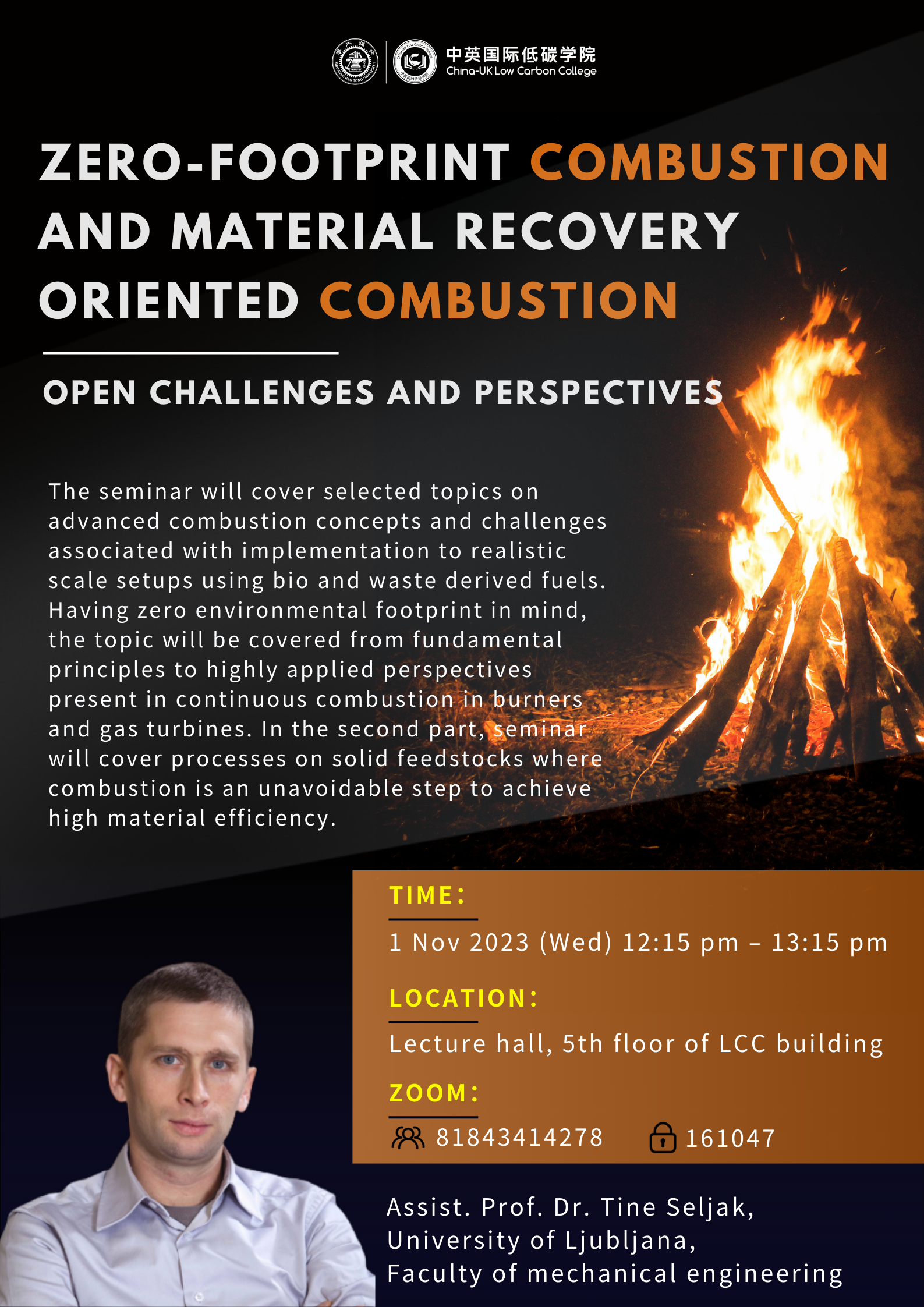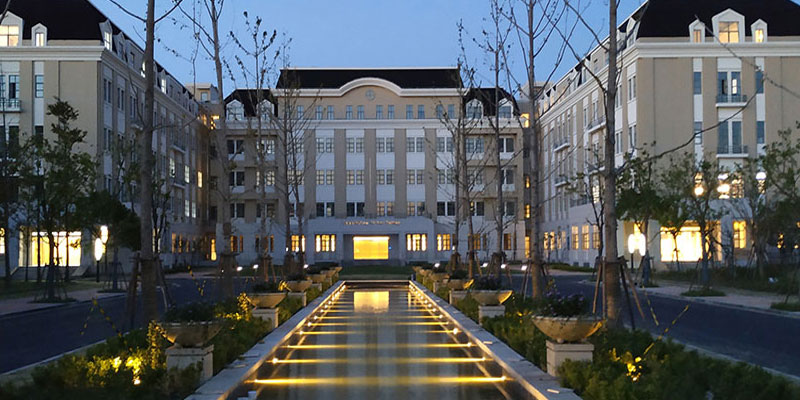学术报告
Zero-footprint combustion and material recovery oriented combustion – open challenges and perspectives
报告题目:Zero-footprint combustion and material recovery oriented combustion – open challenges and perspectives
主讲嘉宾:Assist. Prof. Dr. Tine Seljak, University of Ljubljana, Faculty of mechanical engineering
邀请人:张振东 副教授
时间:2023年11月1日(周三)12:15PM-13:15PM
地点:中英国际低碳学院五楼阶梯教室
ZOOM:81843414278
密码:161047
Bio
.png) Tine Seljak is an assistant professor at University of Ljubljana (Slovenia), Faculty of mechanical engineering. His research work is focused primarily on thermo-chemical conversion processes including combustion, incineration and gasification together with their integration in energy systems and in the concept of circular economy. He is co-leading Sustainable energy pillar within Strategic research and innovation partnership for Circular economy in Slovenia and is holding lectures on Advanced combustion concepts, Energy in circular economy and Aircraft Engines at University of Ljubljana master and bachelor programmes. He is involved several European and national projects related to a wider field of energy engineering and circular economy.
Tine Seljak is an assistant professor at University of Ljubljana (Slovenia), Faculty of mechanical engineering. His research work is focused primarily on thermo-chemical conversion processes including combustion, incineration and gasification together with their integration in energy systems and in the concept of circular economy. He is co-leading Sustainable energy pillar within Strategic research and innovation partnership for Circular economy in Slovenia and is holding lectures on Advanced combustion concepts, Energy in circular economy and Aircraft Engines at University of Ljubljana master and bachelor programmes. He is involved several European and national projects related to a wider field of energy engineering and circular economy.
Abstract
The seminar will cover selected topics on advanced combustion concepts and challenges associated with implementation to realistic scale setups using bio and waste derived fuels. Having zero environmental footprint in mind, the topic will be covered from fundamental principles to highly applied perspectives present in continuous combustion in burners and gas turbines. In the second part, seminar will cover processes on solid feedstocks where combustion is an unavoidable step to achieve high material efficiency. The idea of reinventing the focus in combustion of biogenic waste will be developed in order to obtain best possible residue properties for recovery of secondary raw materials. In essence, the seminar is gathering the latest results from running projects at University of Ljubljana related to new combustion processes that are tailored to the challenges of current and future environmental goals.





 友情链接 ---
友情链接 ---